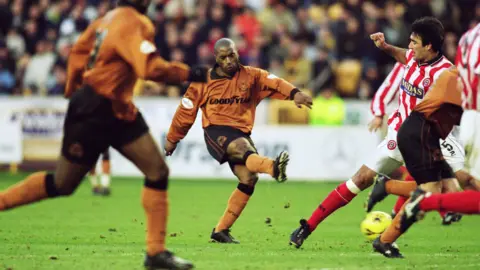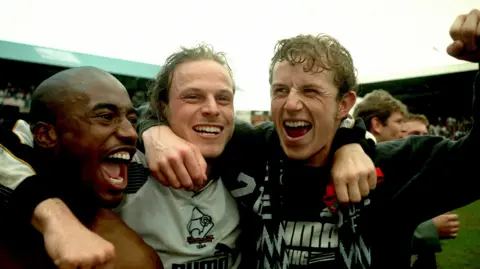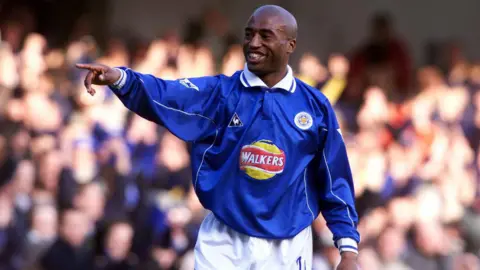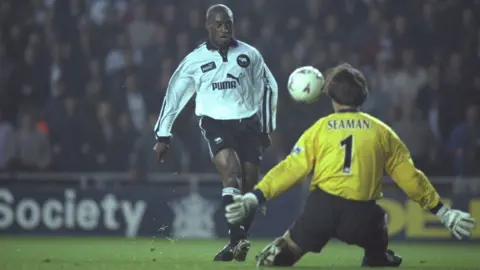The footballer Dean Sturridge opens on the gambling addiction

BBC News, West Midlands
BBC RADIO WM
 Getty Images/Allsport
Getty Images/Allsport“When I could not play football because of an injury, I would have been sitting on my sofa. I had boredom, I would have time – and I would have had the money. It was then that the bets intensified and I was totally out of control,” says a former professional footballer.
Dean Sturridge, born in Birmingham, was a successful striker, in particular playing in the Premier League for Derby County, Leicester City and Wolverhampton Wanderers, as well as having spells at Sheffield United and Kidderminster Harrier.
But behind the scenes, he was struggling with a serious game dependence.
After five and a half years of recovery, Sturridge is using his experience to help others block what he calls the “desert Island” of addiction.
 Getty Images/Allsport
Getty Images/AllsportSturridge is the new ambassador for support for gambling Gordon Moody, who brought the anonymous concept of players from the United States to the United Kingdom for the first time in 1971.
“I know the feeling of being depending on, being alone, being isolated, feeling guilty, feeling shame, feeling embarrassing,” said Sturridge, now 51. “The story of everyone is unique, but I hope to be able to inspire only one person.”
Sturridge’s gambling problem began when she was young but worsened when she was faced with fame and luck to become a professional footballer. The Goal Marcister of the County of derby remains in the Premier League.
“My first access tax was a great figure,” he explained. “He had to go down to buy my first car, a Ford Fiesta Firefly.
“I couldn’t pay it because I had lost the access commission within a few hours that entered my account.”
Sturridge ended up borrowing money from a teammate to pay the car.
“I would go from the bookmakie to the bank … write checks and go to the branch, then collect money.
“By the end of the day you see zero in your account, when thousands had at the beginning of the day.”
 Getty Images/Allsport
Getty Images/AllsportSturridge recognizes that his salary has allowed him to finance his addiction, but he felt the impact in other areas.
“When I would be with my children (and my wife), some of the time I would be on the phone to make a bet,” he recalls. “I wasn’t present in conversations.
“And it’s the most disappointing thing for me that I have regretted. But now I’m happy that I am in healing, I am a better person.
“And now I have a great opportunity with my nephew, who is a year, that I can show him the new improved dean.”
Things arrived in the head when a wife of Sturridge returned home soon one day and found him watching the horses of horses and placed bets. Within 24 hours, he was in an anonymous meeting of the gamblers.
“Walking through those doors, it was the catalyst for me to understand myself.
“As a gambler, I think you have closed (your emotions); it appears and I also did it as a sportsman.
“I always pushed my emotions on the side and I tried to mask them.”
 Getty Images/Allsport
Getty Images/AllsportNow a football agent, Sturridge believes that young players are more equipped to face the traps of fame, but underlines that they still need support.
“It’s important … for people like me, for people in organizations like Gordon Moody, go to schools and football teams and help them only on their trip.”





